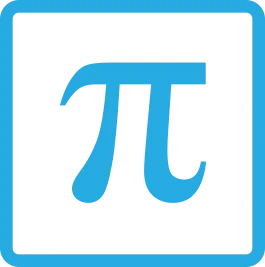If one hundred homeschooling parents were asked what subject they most dreaded, feared, or felt least qualified to teach, the vast majority would probably reply, “maths.” It’s a sad truth that one of the most fundamentally important skill-based subjects is also often the most feared, least understood, and poorly taught of all school subjects. But it just doesn’t have to be so!
As a homeschooling parent, I know you want the very best for your children. Even if you suffer from math phobia yourself, you probably want your children to enjoy all of their school subjects, and you definitely don’t want them to be afraid of anything. Unfortunately though, phobias are often contagious, so we’re going to have to address the problem at its source. But don’t worry: I promise this won’t be painful! It should actually be fun, empowering, and exhilarating!
Where Does Math Phobia Come From?
Before we can find a solution to a problem, it helps to understand its underlying cause. That way we are better prepared, and more likely, to find an effective and lasting solution. The word “maths” describes a rather vast and varied field of study, but what most people understand when they hear the word is actually one particular branch of maths called arithmetic.
Arithmetic is that branch of mathematics that deals with the addition, subtraction, and multiplication of numbers. The word “arithmetic” originated in ancient Greece where it meant “the art of counting.” And, really, that’s all arithmetic is. It is simply counting in ways that become increasingly clever as you climb the ladder of progress. Once you understand this, arithmetic (and indeed all of maths) does become a beautiful and, dare I say, fun art.
Arithmetic… is simply counting in ways that become increasingly clever.
Unfortunately, most primary school teachers are often totally unaware of this. Many have a very poor understanding of the field of mathematics themselves and many, if not most, are just as afraid of the subject as the rest of the population. They think maths is a dizzying collection of formulas, processes, and rules that have no relation to each other or, in some cases, even the real world. They generally try to teach what they have been told to teach without fully understanding why or how what they are teaching relates to the whole of mathematics. In fact, they usually have a very superficial and fragile understanding of what they are supposed to be teaching.
The result? A class full (or rather nearly full) of students who approach maths with the same fear, trepidation, or hatred that their teachers do. When I go to homeschool conferences (and occasionally markets), I often have people come to me and relate their own fears or stories that show this sad truth. In one extreme case, I had an older teacher cross over to the other side of the aisle from my desk as though I had some highly infectious disease and call out to me, “You can’t make maths simple for me!” That’s a serious phobia, and you bet she’s been spreading it to the children in her charge for years!
The “Survivors”
Now, why did I say that the class in the previous paragraph was “nearly full”? Everyone who has been to school will know at least one person who was “good at maths.” Because of the epidemic of math phobia, most people have the idea that you are either good at maths and will go on to be an engineer or accountant, or you are bad at maths and will join the majority who need special signs in shops to help them decide which option represents the better buy or how much something will cost after a 40% discount is applied.
Let’s consider this minority for a minute and try to find what makes them tick! Let’s take a parallel example from another field: English. Every early years teacher, and many parents, will tell you that some kids just teach themselves to read. For many years, teachers believed that only those kids who could teach themselves to read, and those that could learn with only a little prompting, were destined to be readers. The rest of the class might be taught to “get by” but would never be good at, or enjoy, reading.
However, in recent years the Science of Reading (SOR) movement has proven otherwise. In my own homeschool and tutoring practice, I have been implementing many of the tenets of SOR long before I ever heard the term. Why? Because the “old fashioned” methods that worked for centuries are the very methods that SOR advocates have “invented” (I would say rediscovered).
So, what is the difference between the kids who could teach themselves (or are easy to teach) and those who struggle without proper teaching? In the case of reading, it’s a skill known as phonemic awareness. Some young kids are highly attuned to the individual sounds in words while others are less so, but virtually ALL can be taught to hear them. So, the fundamental skill necessary for reading can be taught. And that’s a very important realization. It means that the world of literature can be opened to virtually everyone.
Now here’s a revelation for many: maths is actually a language! So, the kid in the class that is “good” at maths is very much like his classmate who is good at reading. Just like she is naturally “attuned” to the sounds in words, he is attuned to the patterns in numbers. The squiggles and methods that instill terror and confusion in his classmates inspire him with awe and wonder.
maths is actually a language
The Solution
So by now, I hope you are beginning to see at least a faint glimmer of hope: the world of maths does not have to be closed behind a mysterious veil that only the favored few can pass through! Since maths is actually a language, it is possible for you (yes, even you who are terrified at the very thought!) to learn how to do, understand, and (yes!) even enjoy maths.
Just like the outmoded idea (which many teachers still cling to, by the way) that some kids will just naturally learn to read and others will never learn to read well has been refuted by the Science of Reading movement, Milestone Maths aims to guide homeschooling children (and their parents!) to the understanding of maths that allows them to flourish and find enjoyment in the art of counting.
What’s Next?
Next month, we’ll begin our look at maths as a language and introduce the first keys to unlocking the understanding that will banish math phobia forever.
In the meantime, if you want to give your children the foundations that prevent math phobia in the first place, check out Milestone Maths!


